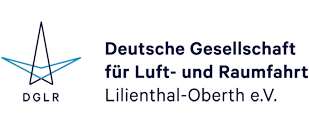DGLR-Publikationsdatenbank - Detailansicht
Autor(en):
E. Gadzo, F. Porcelli, R. Förstner, K. Paetzold
Zusammenfassung:
Traditionally, space missions were exclusive for big governmental institutions. Nowadays, the technological and budget resources for carrying on a space mission are becoming more widely available, giving the possi-bility to universities, start-ups, and private companies to reach the space. The new players usually develop scaled down space missions, given the constraint they have, especially on budget and human resources. One of the reasons for this is that, in view of the needs of users and operators of small satellite mission systems, the system of the individual satellite is no longer the only decisive development objective. Rather, in future projects, the focus of the development will be on the services and performance of the emerging space network, consisting of different systems that interact and cooperate in a multidisciplinary manner. The systems form a network that can meet the needs and desires of the users while considering the constraints of the operators. To ensure the successful development of such a system of systems, it is necessary to use efficient, goal-oriented and, above all, systematic approaches in the product development process when developing the individual systems. This paper presents a new systematic approach for the development, management, and control of the require-ments of a small satellite mission, as well as for increasing the information maturity of the requirements. It further highlights the differences between the stricter and time-consuming processes, required for large mis-sions, and the flexibility achieved in the approach presented in this paper. Both, the reference of ECSS stand-ards and the project constraints and limiting factors of a small satellite mission in a stage gate driven process such as a tight schedule, budget and human resources have been taken into consideration. This way, it has been possible to develop an effective process for the development and engineering of the requirements, given the complexity of a mission carrying more than 20 experimental payloads.
Veranstaltung:
Deutscher Luft- und Raumfahrtkongress 2022, Dresden
Verlag, Ort:
Deutsche Gesellschaft für Luft- und Raumfahrt - Lilienthal-Oberth e.V., Bonn, 2022
Medientyp:
Conference Paper
Sprache:
englisch
Format:
21,0 x 29,7 cm, 9 Seiten
URN:
urn:nbn:de:101:1-2022102816151069513608
DOI:
10.25967/570212
Stichworte zum Inhalt:
requirements engineering, small satellite mission, process development, new space
Verfügbarkeit:
Download
- Bitte beachten Sie die Nutzungsbedingungen dieses Dokuments: Copyright protected
Kommentar:
Zitierform:
Gadzo, E.; Porcelli, F.; et al. (2022): Requirements Engineering Process for SeRANIS, a Small Satellite Mission. Deutsche Gesellschaft für Luft- und Raumfahrt - Lilienthal-Oberth e.V.. (Text). https://doi.org/10.25967/570212. urn:nbn:de:101:1-2022102816151069513608.
Veröffentlicht am:
28.10.2022
